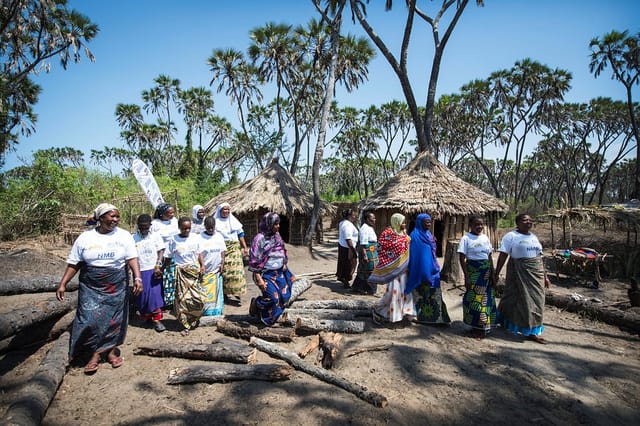The Hill
by Bahati Muriga
 |
Source: Oxfam East Africa |
As a widowed female farmer from an island in the middle of Lake Victoria in Tanzania, I will admit that walking in the marble hallways of your U.S. Congress was a strange experience. So much grandeur is perhaps a daily reality for many of you, but for me it was striking. But what was also striking is the warmth and concern I received while visiting last week with members of Congress and their staff.
I have faced many challenges in providing for my family. When my husband passed away, I needed to take on more of his farming role to ensure my children receive the nutritional, healthy food they need for a better livelihood. Thanks to investments and to assistance by organizations like Oxfam, farming has been a path to food security and empowerment for me, giving me not just food on the table for my family, but also a voice within my community.
Unfortunately, opportunities for small-scale farmers, especially women, to build an income and bigger, better agriculture productivity are not available for many.
Last week, I and Oxfam staff met with key legislators about the importance of passing the Global Food Security Act of 2015. The act builds on the success of the Feed the Future initiative, a program that works to transforms lives by partnering with countries to develop their agriculture sectors and break the cycle of poverty and hunger. There is enough food in our world to feed everyone but people living in poverty face many hurdles in obtaining sufficient food to ensure health and nutrition. Right now, one in seven people still goes to bed hungry each night. This is a number we all have the power to change.
Those of us who are most likely to bear the heaviest burdens within this cycle are female farmers. Along with facing inequality issues, gaining access and owning land is often a challenge for women like me. Women are often less likely to have a voice in decision-making power over resources and income generated by farming.
Empowering women can help unlock agriculture’s potential to reduce hunger. Across Africa, eight out of 10 people who work in farming are women, according to the World Food Program. The female farmers I work alongside with in Tanzania are strong and passionate, wanting to contribute to their families and communities. But on top of dealing with daily gender discrimination, these female farmers are facing looming resource constraints to fertile land and water due to climate change, erratic weather patterns and land grabs.
It’s important we urge governments to invest in small-scale women farmers, so that they can have better access to education, seeds, and the capital necessary to increase healthy food production.
The Global Food Security Act and Maputo Declaration on Agriculture and Food Security partner with communities to help them develop agriculture to generate economic growth, while improving resilience and food security. Legislation to make food security and nutrition a permanent priority is crucial to protecting the needs and interests of small-holder farmers.
On this World Food Day, I feel a new sense of hope in what we can achieve for the global food system if governments, civil societies and everyday farmers come together. Within the next 15 years, ending hunger is possible, but must invest in farmers – especially women farmers – to make this a reality.
Muriga is a small-holder farmer from the Mwanza region of northern Tanzania. She is also the winner of the Tanzanian Female Food Heroes television competition, an award that identifies and champions women food producers.

